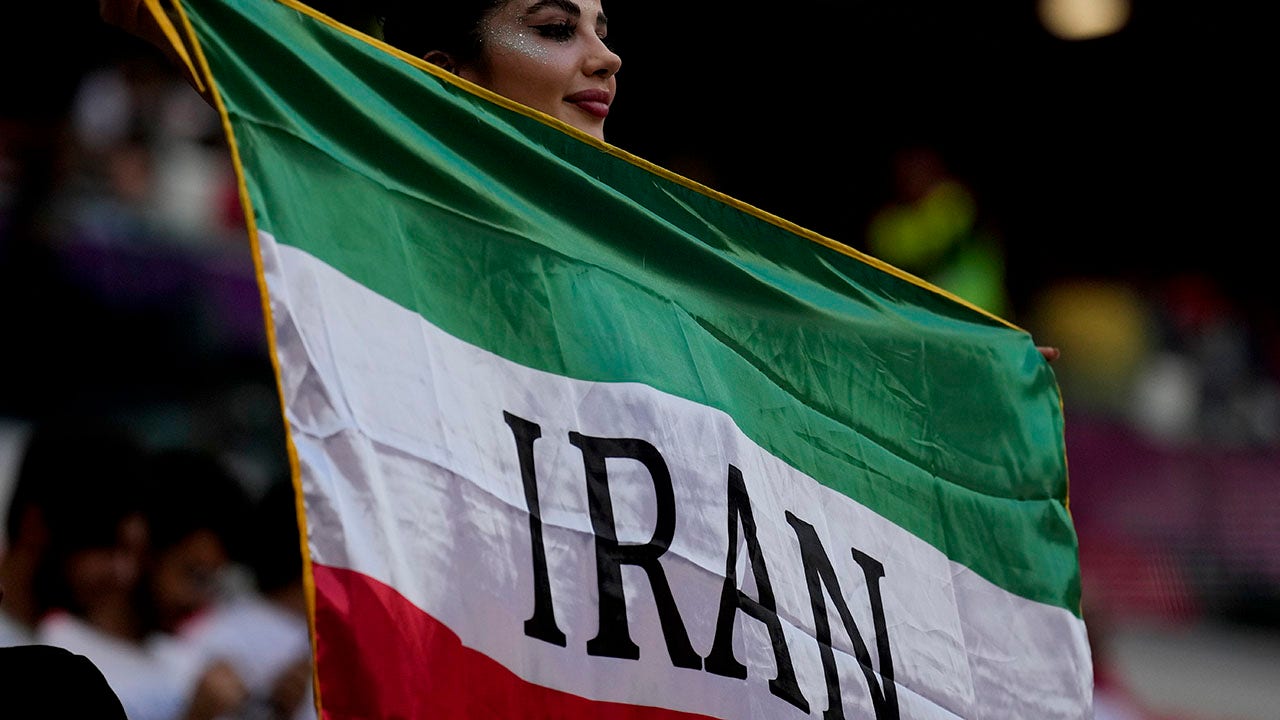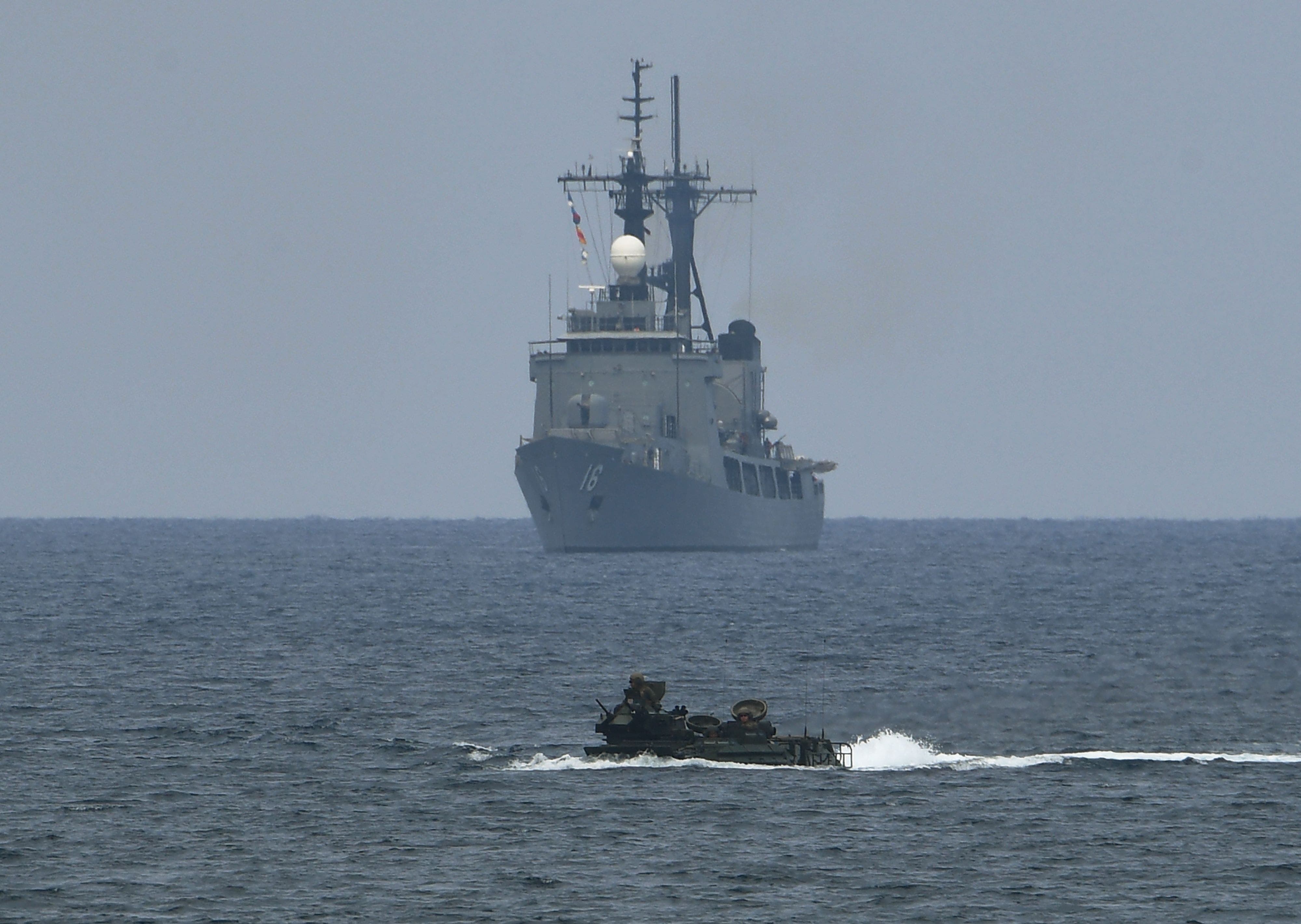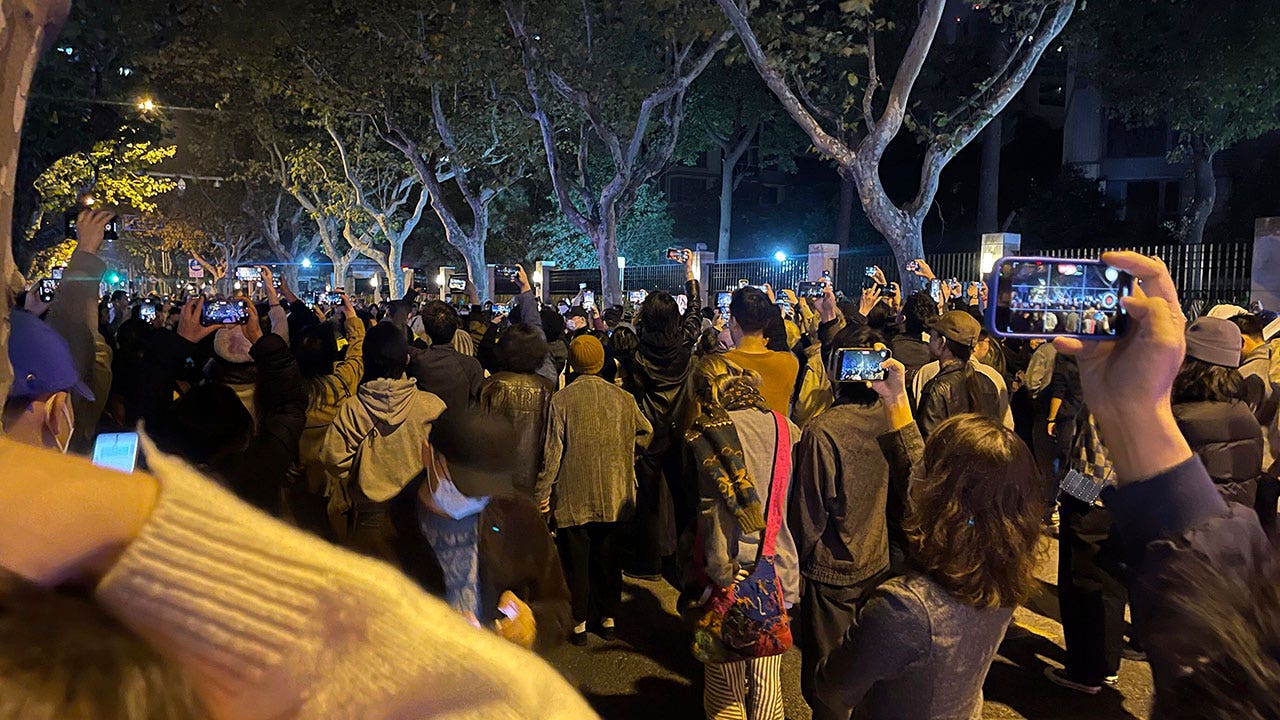Today marks 35 years since the devastating accident at Reactor Number Four of the Chernobyl Nuclear Power Plant, and solemn ceremonies were held at several locations in conflicts to commemorate those lost.
The world’s worst nuclear power disaster only killed dozens immediately – the number most often cited is 31 – a number that has always seemed surprisingly low given the sheer scale of the event, but thousands died over the long term from radiation-linked illnesses such as cancer. Millions of acres of farmland in northern and eastern Europe were contaminated. The true toll of Chernobyl’s meltdown remains disputed and possibly simply unknown.
CHERNOBYL: INSIDE THE SITE, STORY, AND SECRETS OF THE NUCLEAR DISASTER 35 YEARS LATER
Family and friends of those victims boil it down to a simple message.
“We don’t have the right to forget heroes like the firefighters, servicemen of the armed forces, internal forces, security services, coal miners from the Donbas, militia workers, Kiev subway builders, medics,” said Col. Ivan Kovalchuk, who was involved in the cleanup. “They passed though all circles of nuclear hell to save lives for future generations.”
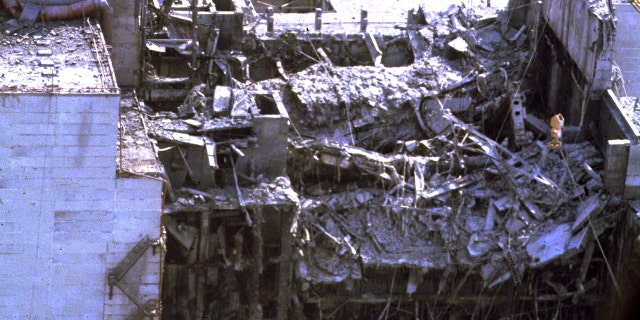
View of the Chernobyl Nuclear power plant three days after the explosion on April 29, 1986, in Chernobyl, Ukraine. (Photo by SHONE/GAMMA/Gamma-Rapho via Getty Images)
(Getty)
Untold numbers of sacrificial lambs from all these various fields were tapped to charge headlong into a chaotic and life-threatening situation in a helter-skelter way. Their bravery has been documented in a recent award-winning miniseries and a Nobel-prize-winning book among other testimonies. There were so many critical tasks to carry out in a race against time, from dousing nuclear fire, burying toxic embers, removing molten graphite to fighting to save the lives of patients full of radiation.
There were mass evacuations of surrounding communities – albeit many of those came late – with people leaving lives and homes behind. They are stories that continue to break hearts and shock with the sheer immensity and intensity of the accident and the cover-up by the Soviet authorities.
Workers had been carrying out experiments with safety systems that led to a chain reaction of explosions which sent a fireball upwards and through the roof leading to a partial meltdown of the reactor. Fifty tons of radiactive material were released into the atmosphere. According to KGB documents unsealed by the Ukrainian authorities today, the USSR had known of safety issues at the plant for some time before the accident.
“The 35th anniversary of the Chernobyl tragedy is a reminder of how state-sponsored disinformation, as propagated by the totalitarian Soviet regime, led to the greatest man-made disaster in human history,” the Foreign Ministry said.
10 FACTS ABOUT THE CHERNOBYL NUCLEAR DISASTER
I was a student in the Soviet Union at the time, studying Russian as my junior year abroad experience, and we were on spring break. We’d gone to Kiev, the Ukrainian capital, and then onto Vilnius, the Lithuanian capital, where we were the day the explosion happened. We were blissfully unaware for a week until our parents heard about it on the news and eventually were able to get through to us on the phone, in a panic. We had been out enjoying the nice weather under radioactive skies. Nobody on the ground had said a word about Chernobyl. It was only when the Swedish government detected heightened radiation levels from the clouds blowing west that the world actually began to find out what was going on.
The Chernobyl Exclusion Zone oddly has become a tourist attraction. It is not safe to live there but apparently safe enough to visit, and 120,000 adventurers have gone in recent years. It’s an eerie monument not only to the disaster itself but to the former regime, with discarded statues of Vladimir Lenin and old Soviet machinery. Ukraine voted to “decommunize” the country in 2015. But the Exclusion Zone falls outside normal municipal authority and as such some of this history lives on.
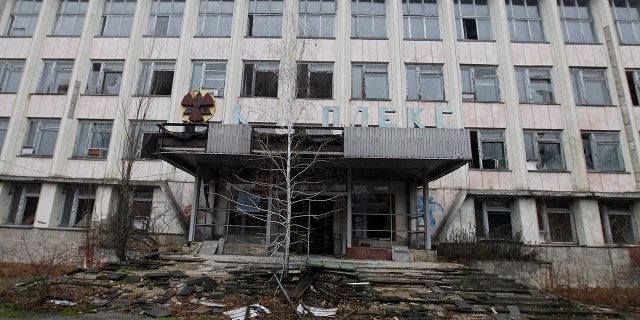
A view of an abandoned city of Pripyat in Chernobyl, Ukraine, on 25 December, 2019. The Chernobyl disaster on the Chernobyl nuclear power plant occurred on April 26, 1986. (Photo by STR/NurPhoto via Getty Images)
(Getty)
Chairman of the Exclusion Zone Oleksandr Syrota said, “The whole zone is a reserve for totalitarianism and it is relevant to create such museums here and bring everything into this place.”
But Chernobyl town wasn’t totally vacant. Scattered groups of elderly residents couldn’t be kept away. Yevgeny Markevich, 85, and his wife snuck back in.
“I made my way here using guerrilla tactics three times. The first time on a speed boat,” he said, explaining how he used fake documents to get in with a group of scientists. “Another time in police uniform and another through the forest. When you want something, there is nothing that can stop you.”
He and his wife grow their own vegetables but get them checked for radiation. And he says he misses the way it used to be.
As do those who had to leave the Chernobyl plant for good when the last reactor shut down in 2000. The undamaged reactors actually kept pumping out energy alongside the devastated one, which was covered with a sarcophagus. I was there for the final days of the plant too. I remember being struck by how sad some of the workers and their families seemed to be about finally giving up the ghost. Defying the odds, Chernobyl churned into this millennium.
Ukrainian President Volodymyr Zelensky visited Chernobyl today and warned against further parts of his country turning into ghost towns as the continuing conflict with Russia cripples the Donbas, whence some of those brave rescue workers hailed.
“We cannot go back in time and prevent the tragedy at the Chernobyl Nuclear Power Plant,” he said. “But we can definitely do everything today to prevent another tragedy which may occur in the Donbas.” At the same moment, he said he is actively trying to arrange a meeting with Russian President Vladimir Putin and said an Orthodox Easter cease-fire is something to strive for — which could be an end to Ukraine’s 21st-century crisis.






